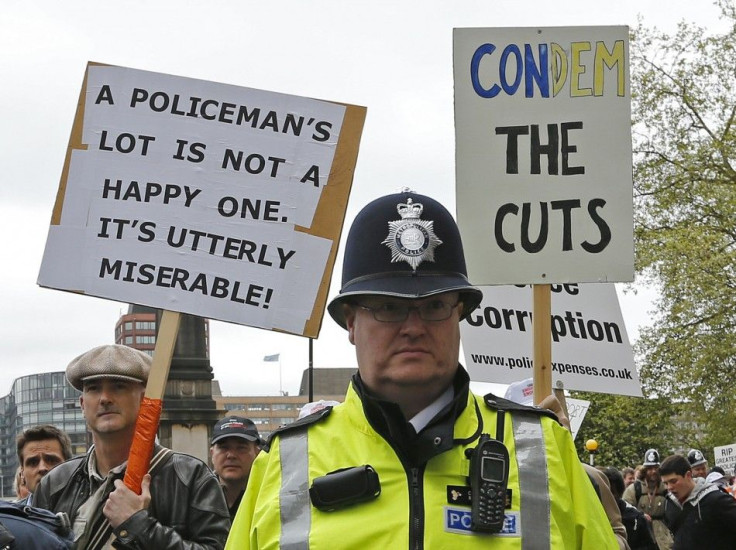UK Public Sector Workers, Including Police, Strike To Protest Pension Changes, Job Cuts

Hundreds of thousands of British public sector workers, including police officers, prison service staff, paramedics and border control agents, staged a 24-hour nationwide strike on Thursday to protest the government’s plans to reform their pension plans.
The Metropolitan Police estimated that more than 30,000 policemen (one-fifth of the entire force in England and Wales) joined the work stoppage to protest budget cuts that will slash the number of constables in the country by at least 16,000 over the next four years.
Unions representing the workers complain that the government is forcing them to work longer for less pay, while Westminster warns that the current pension system is unsustainable and unaffordable since peoples’ life expectancy has been rising.
The government proposes to hike the retirement age for public sector employees to 68 and also seeks substantially higher contributions from employees.
Both sides are settling in for a long battle.
We're going to be paying more money when the cost of pensions are falling and our members have had a pay freeze for two years. So it's unfair, and ministers cannot justify the changes, said Mark Serwotka, general secretary of the Public & Commercial Services (PCS) trade union.
But Francis Maude, a Cabinet Office minister said it is dead issue and that pension negotiations will not re-start and that nothing further will be achieved through strike action.
With respect to the police officers, they are prohibited by British law to go on strike – hence, the constables who demonstrated on Thursday took the day off from work and were not in uniform.
Donning black baseball caps with the slogan “cuts are criminal” emblazoned upon them, police marched through Central London demanding an end to the budget cuts that they fear to lead to more crime on the streets.
''We care very deeply about the communities that we serve. We have seen what happens when we have a Government that has given policing a very low priority,” said Police Federation chairman Paul McKeever at the march.
''If you are cutting our jobs, then you are cutting the service we can deliver and the public's safety is at risk.''
A police officer named Scott Jeffreys from Derbyshire told the Daily Telegraph: We've come down today to increase public awareness about the cuts and the effects that they're having on the service we provide. But it's not just about our pay and pensions. We're also here because we're concerned about the stealth privatization of the police service.”
Jeffreys added: Our chief constable takes the view that this is a route that we won't go down, which I'm glad about, as I think the privatization route is a very dangerous one. If private companies are contracted to do a job for us and then we're low on money, they will still have to get paid, so the losses will be in frontline services again. There's been no public consultation, no parameters seem to have been set and no guidelines seem to have been issued. Why give money to private organizations whose sole reason for existence is to make profit when as a police service, every penny we get goes on policing? That's important and that's how it should stay.
In response to the policemen staging the march, a spokesman for Prime Minister David Cameron said in a statement: The Government inherited a very tough fiscal challenge. We are having to make spending cuts across the board. We think the reductions in spending on the police are challenging but manageable and that the police will still have the resources that they need to do the important work that they do.
© Copyright IBTimes 2025. All rights reserved.





















